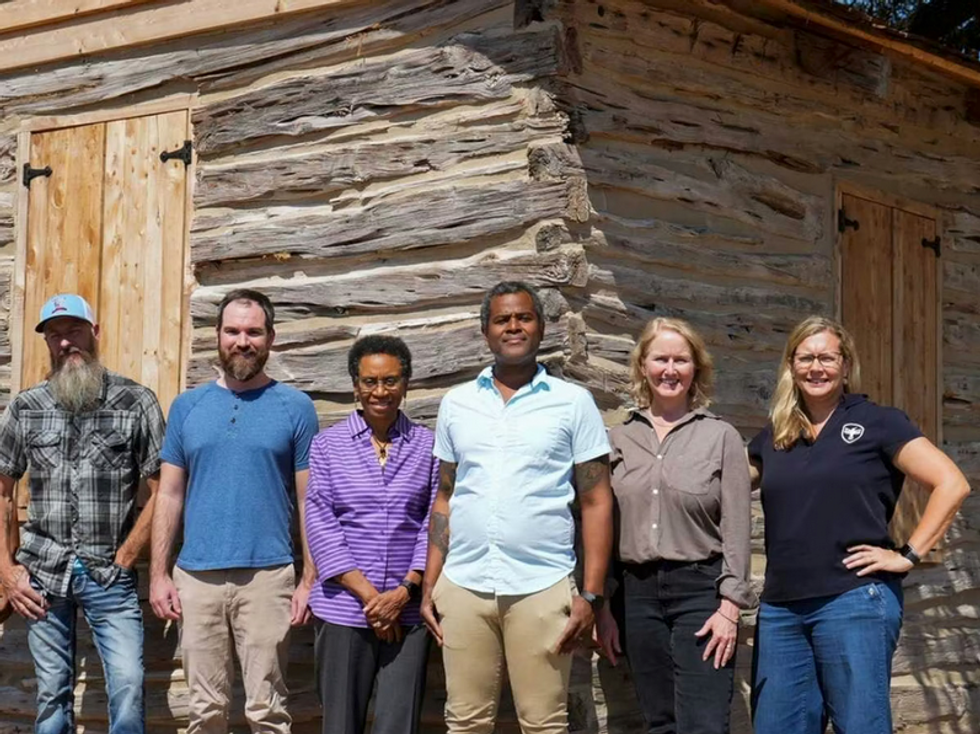local lit
Neal Pollack’s latest novel, Jewball, a return to fiction (and a self-publishingexperiment) for the acclaimed author
Neal Pollack is a busy man. Though he and his family recently relocated from Los Angeles to Austin, returning to the city they called home in the early 00s, he hasn’t has much time to relax and enjoy the early Texas fall; in the two months he’s been here, he’s gone on mini-tours to San Francisco and New Orleans—he’s even taken trips to London and Croatia. A quick trip overseas is all in a week’s work for Pollack, a novelist-slash-memoirist-slash-essayist whose past works cover yoga (Stretch), parenting (Alternadad), literary bravado (The Neal Pollack Anthology of American Literature) and war reporting (Beneath the Axis of Evil).
His personal history is equally fascinating; getting his start as a journalist in Chicago in the 90s, Pollack studied comedy with “father of improv” Del Close at iO Chicago (putting his trademark dry humor to good use). His first book, The Neal Pollack Anthology of American Literature, was a tounge-deeply-in-cheek satire of the writing life (incidentally, the second title ever published by the writerly folks at McSweeney’s). He followed the Anthology with another meta-fictional novel, Never Mind the Pollacks, a tale of rock and roll redemption accompanied by it’s own soundtrack from the (Austin-based!) Neal Pollack Invasion.
In recent years, Pollack has turned to writing about what matters most to him: being the parent of an adorably precocious young boy, and setting out on a “so now what?” journey of self-discovery (that, in Pollack’s case, led to “the unlikely making of a yoga dude”).
Jewball, released tomorrow (October 11), marks the writer’s return to fiction. Transporting us back to 1937, a mid-war era where tension runs high, the novel follows improbable hero Inky Lautman, a Jew struggling in a world that’s growing increasingly volatile–while also maintaining his role as the South Philadelphia Hebrew Association basketball team’s point guard.
We spoke with Pollack about his inspiration for the novel, returning to Austin and his decision to enter the sef-publishing arena.
Jewball comes after Stretch and Alternadad, both personal, and non-fiction; what inspired the shift back to fiction?
I was sitting in a steam room during a retreat for Jewish hipster intellectuals (of course), talking to a history professor, a DJ and various other "connector" types. The NBA playoffs were ongoing and our conversation turned to hoops. They started talking about the history of Jewish basketball, of which I'd previously been ignorant. It sparked my imagination, and when I got home I started researching. The world was so rich and fertile that I knew I had to write something. At the same time, I found myself reading a lot of crime fiction and also writing some noir-ish short stories. It had always been my dream to write a noir novel, and the era that most interested me—the 1930s—was rich ground, almost the spawning ground, of American noir fiction. So rather than pursue a nonfiction book about Jewish basketball, I decided to try my hand at a novel. For years, I'd been distracted by the shiny objects and reasonable-sized book contracts of the memoir genre, but now it was time for something else.
Which part of this novel came to you first; the character, the setting, etc?
The gritty 1930s milieu definitely came first. The dominant Jewish basketball team of the era was from Philadelphia, so I knew right away that I had my setting. Research quickly revealed character, and as I dug further into 1930s culture, I started reading about homegrown American fascism, specifically the German-American Bund, and gradually the two strands—Jewish basketball and American Nazism—began to weave themselves together in my mind's eye into a plot.
Are you a big basketball fan?
I grew up in Phoenix, when the Suns were the only game in town. The team was usually at least competitive, and sometimes quite good, so I got the bug. When I was 10, I went to the Joel Kramer basketball camp at the Phoenix JCC. Kramer was a lousy backup Jewish center for the Suns (not that "Jewish center" is actually a position, but he was Jewish, he was a center, and he had an awesome pornstache, so there you go). Maybe the seeds of Jewish basketball were planted back then, during my crappy performance in morning layup drills.
What kind of research did you do for the novel?
I read lots of books, both about Jewish basketball and about homegrown American fascism in the 30s, and watched a documentary called The First Basket, about the history of Jewish basketball. That was mostly prologue to the actual writing. While I was making the book itself, I spent a lot of time on websites about 1930's history and culture. If I described a family's living room, I wanted to make sure it contained the right brands of furniture. Verisimilitude was important to me—for the book to be successful, it had to read like something that might have been written in 1938, immediate and full of accurate detail.
What’s the significance of having such a pronouncedly Jewish character, for you? Was writing Inky different than writing past characters?
Inky Lautman, my protagonist, is Jewish by birth and by culture, but other than attending a Shabbat dinner so he can play footsie with his girlfriend under the table, he doesn't really do anything "Jewish" in the novel. He's not a religious man. In that sense, though he's nothing like me in terms of background and interests, his character was a chance for me to work out some of my own ambivalent feelings about my Jewish identity. Only reluctantly, because of circumstance and history, does Inky begin to come to terms with his identity and act (sort of) heroically.
As to how Inky is different than past characters, it's hard to say, because the heroes of all my previous books of fiction bore my name. They weren't me, but they were all burdened with this postmodern satirical conceit that I had to sustain. Inky can just float free, on his own terms, as can all the other characters in Jewball. That was quite liberating for me as a writer.
You recently relocated to Austin from Los Angeles; how’s the transition going?
Moving is always hard, but it's going as well as you would expect. We had to deal with the horrible weather in August and September like everyone else, but now that seems to be over and we're able to fall back into the Austin groove. We lived here before, so we already had a fairly large community of friends to support us, and knew our way around town for the most part.
What are some of the biggest changes between the city you left and the city you moved back to?
I first moved here in 2002, and the city seemed much smaller and grittier then. It wasn't quite as crowded and was a bit less yuppified. At the same time, the arts and culture scene is larger and more vibrant now, and the food is so much better that it's almost not the same place. I sometimes find myself driving past something like, say, The Triangle and wondering where the hell it came from. But that open-minded, friendly spirit that defines Austin is still here, and still makes it a terrific place to call home.
Obviously, being Jewish in Texas is different than being Jewish in Hollywood, but what is the experience of living here while raising a Jewish family like?
In L.A., you walked out the door Jewish. Here, it's more hidden. Half my kids' friends were Jewish in L.A., now, they're asking him if "Yom Kippur" is a Spanish term. To find Jewish community, we've had to join a congregation and will probably join the JCC. At the same time, I wouldn't say that Judaism is exactly hidden here. There are lots of Jews in Dallas and Houston, and the infrastructure is still pretty strong.
You do a lot of freelance work; what are some of the weirdest things you’ve covered?
Suddenly, I find myself in a professional situation where I'm test-driving luxury cars in Europe. I'm also writing tech features for Wired and for British magazines. Last year, I got to go to Sweden for 72 hours as part of a story on Spotify. I seem to recall having a political satire column in Vanity Fair in 2002, and now I write reviews of academic yoga books for an academic yoga magazine. There was a time when I only wrote about parenting. It's not the most stable career in the world, or the most lucrative, but something always seems to come up.
You're self-publishing Jewball--what exactly does that mean?
It means that I hired my own editor and copy editor and book-jacket designer and am doing my own publicity. The book isn't going to appear through the usual distribution channels and will only be for sale online, both in e-book and print-on-demand editions.
Why did you decide to publish this way?
The technology finally seemed to be in place to match my entrepreneurial ambition. Also, the traditional avenues to publication, while still there, seem to be narrowing. It's much, much harder for an author, even an established one like me, to break through. I wasn't going to get a big advance for this book. Who knows how much support a mainstream publisher would have given it? I might have gotten scheduled onto more sports-talk radio shows, but those appearances don't always sell books.
It's a risk, but at the end of the day, I started writing the book in earnest in February and now it's October and the book is about to appear. If this were corporate publishing, we wouldn't be seeing Jewball until next October, if not sometime in 2013.
Do you think that self-publishing is going to become much more common among established authors?
For writers of pulpy genre fiction that's cheap and easily consumed on the Kindle or other e-readers, it's going to become the dominant reality. They can make so much money this way. For writers like me--midlist "literary" types--I think it's going to be more prominent as well as we get pushed off to the side of the mainstream publishing catalog. And then for other writers it'll probably be an avenue to put out a collection of stories or old magazine articles here or there. I don't think it would make sense for someone like, say, David Sedaris to do it because the old system serves him so well. The corporate houses are changing, but not dying. They'll adapt. But I think the odds are high that the next David Sedaris, whoever that is, will come up through the self-publishing ranks. Good bands put out their own albums all the time. That's going to be the case with books from now on as well.
---
Neal Pollack’s latest novel, Jewball, will be available exclusively online.

 The Neill-Cochran House Museum's mid-19th-century slave quarters received Planning and Historic Designation grant support for restoration and historical interpretation.Photo courtesy of Preservation Austin
The Neill-Cochran House Museum's mid-19th-century slave quarters received Planning and Historic Designation grant support for restoration and historical interpretation.Photo courtesy of Preservation Austin Built around 1863, the Henry G. Madison cabin in Rosewood Park received Bricks and Mortar grant support for preservation planning work.Photo courtesy of Preservation Austin
Built around 1863, the Henry G. Madison cabin in Rosewood Park received Bricks and Mortar grant support for preservation planning work.Photo courtesy of Preservation Austin